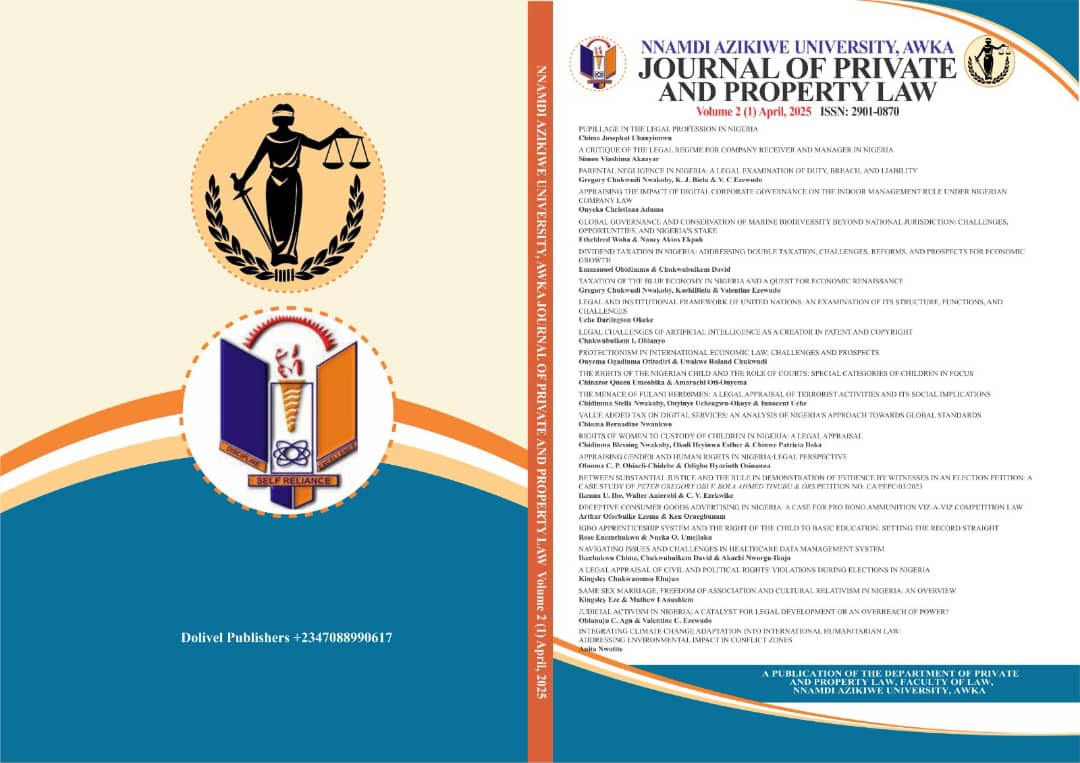IGBO APPRENTICESHIP SYSTEM AND THE RIGHT OF THE CHILD TO BASIC EDUCATION: SETTING THE RECORD STRAIGHT
Keywords:
Apprenticeship, Igbo apprenticeship system, Right to Education, Child rights, Poverty AlleviationAbstract
International, as well as local legal instruments uphold education as a human right. Education is
meant to be free and compulsory at the elementary and fundamental stages and it is the duty of the
government to provide it. For Nigeria, according to the Child Rights Act, the fundamental stages
include junior secondary education. It is obvious that the form of education meant by these provisions
is the formal and western version. The aim of education has been stated to include, among other
goals, lifting people out of poverty and the provision of a better life. The Igbo Apprenticeship system,
which though not formal, has proven to be not only a sure way of lifting people out of poverty, but a
recognized means of wealth creation, requires the child to be absorbed at an early stage in order to
acquire the full benefit of the model. Should the pursuit of this model be viewed as an infringement
of the right of the child to education or can it be categorized as an educational package on its own.
The methodology used in this work is doctrinal and the result is a finding that this model does more
to accomplish one of the stated goals of education, especially in a developing country like Nigeria.
The government should take steps to formally recognize this model, amend the law to accommodate
it and set up an agency to oversee the operations.

